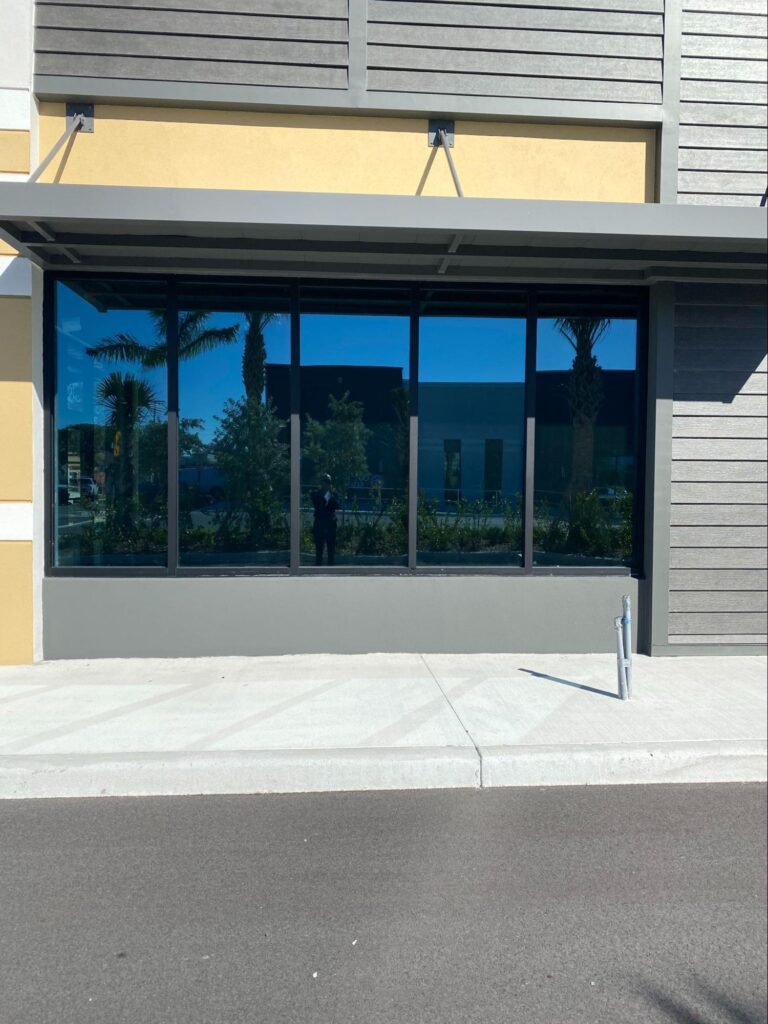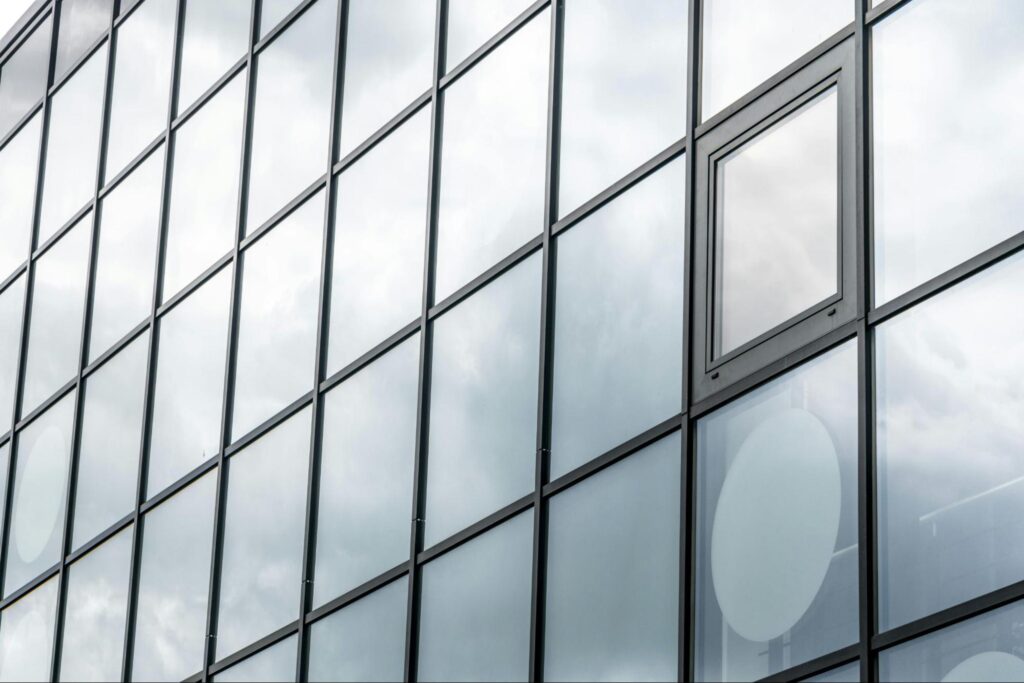Double-pane windows have become increasingly popular in recent years due to their energy efficiency and ability to reduce noise transmission. However, many homeowners are not aware that these windows can also benefit from tinting. In this article, we will explore the considerations and benefits of tinting double-pane windows, helping you make an informed decision about whether this is the right choice for your home.
Understanding Double Pane Windows
Before we delve into the world of tinting double-pane windows, it’s important to have a basic understanding of what they are and how they work.
Double pane windows, also known as insulated glass units (IGUs), are a popular choice for modern homes and buildings due to their energy efficiency and soundproofing capabilities. These windows consist of two panes of glass separated by a narrow gap, typically ranging from 6 to 20 millimeters. The space between the glass panes is crucial for providing thermal insulation and reducing noise transmission.
The Basics of Double-Pane Windows
Double-pane windows, as the name suggests, consist of two panes of glass separated by a narrow gap. This gap is often filled with air or a non-toxic gas, such as argon or krypton, to provide enhanced insulation. The multiple layers of glass and the insulating gap between them help to minimize heat transfer, making them more energy-efficient than single-pane windows.
When it comes to the construction of double-pane windows, the quality of the seals and spacers between the glass panes is crucial. These components help maintain the integrity of the window unit by preventing moisture from entering the space between the panes, which could lead to condensation and reduced thermal performance over time.
How Double-Pane Windows Work
The key principle behind the energy efficiency of double-pane windows is their ability to reduce heat transfer through conduction, convection, and radiation. The two panes of glass, along with the insulating gas, create a barrier that slows down the movement of heat from the warmer side to the cooler side. This helps to keep the interior of your home cool in the summer and warm in the winter.
Furthermore, the low-emissivity (low-E) coatings applied to the glass surfaces of double-pane windows help to reflect infrared heat into the room while allowing visible light to pass through. This feature not only improves the overall energy efficiency of the windows but also helps protect furniture and flooring from fading due to UV exposure.
The Need for Tinting Double-Pane Windows
While double-pane windows offer many benefits, there are specific considerations that may lead homeowners to consider tinting their windows.
When it comes to enhancing privacy and security, tinted windows offer more than just a visual barrier. The tinting film can also help to strengthen the glass, making it more difficult to break. This added layer of security can provide homeowners with peace of mind, especially in areas where break-ins are a concern. Moreover, the tinting film can hold the glass together in case of breakage, reducing the risk of shattering and potential injuries.
Enhancing Privacy and Security
Tinted windows provide an added layer of privacy by reducing visibility from the outside. This can be particularly beneficial for ground-level rooms or properties that are close to neighboring buildings. Additionally, the tinting film acts as a deterrent for potential intruders, as it makes it more difficult for them to see inside your home.
Another significant advantage of tinting double-pane windows is the improvement in energy efficiency and UV protection. By reducing the amount of heat entering your home, window tinting can help regulate indoor temperatures, leading to lower energy consumption and cost savings. Furthermore, the UV-blocking properties of tinted windows not only protect your furnishings from fading but also safeguard your family from the harmful effects of prolonged sun exposure. This added layer of protection can contribute to a healthier indoor environment and prolong the lifespan of your belongings.
Energy Efficiency and UV Protection
Tinting your double-pane windows can further enhance their energy efficiency. Window tint reduces the amount of heat that enters your home, reducing the need for air conditioning and lowering your energy bills. Additionally, tinted windows block a significant portion of the sun’s harmful ultraviolet (UV) rays, which can fade furniture, carpet, and artwork over time and pose a risk to your skin.
Different Types of Window Tints
When it comes to choosing the right window tint for your vehicle or home, it’s essential to understand the different types available on the market. Each type of window tint offers unique characteristics and benefits, catering to various needs and preferences. Here are some of the most common types:
Dyed Window Tint
Dyed window tint is a budget-friendly option that provides a non-reflective appearance. This type of tint works by absorbing solar heat and blocking a moderate amount of UV rays. While it can enhance the aesthetics of your windows, dyed tint may not be as effective in reducing heat as some of the other types available.
Metalized Window Tint
Metalized window tint is crafted with tiny metallic particles that reflect heat and block UV rays effectively. In addition to providing excellent heat reduction, this type of tint can enhance security by making the glass more shatter-resistant. However, one potential drawback of metalized tint is that it may interfere with electronic devices and signal reception due to its metallic content.
Carbon Window Tint
Known for its sleek and matte finish, carbon window tint is a popular choice for those looking to combine style with functionality. This type of tint blocks a significant amount of heat and UV rays, making it a versatile option for various climates and preferences.
Ceramic Window Tint
Considered the premium choice among window tints, ceramic tint offers superior heat reduction, UV protection, and clarity. Its advanced technology allows for optimal performance without interfering with electronic devices or signal reception. Additionally, ceramic tint boasts excellent color stability over time, maintaining its appearance and functionality for years to come. While ceramic window tint may come at a higher price point compared to other options, its long-term benefits and performance make it a worthwhile investment for many.
Factors to Consider When Tinting Double-Pane Windows
Before proceeding with tinting your double-pane windows, there are several important factors to consider:
Window Tinting Laws and Regulations
Window tinting laws vary by state and country, specifying the maximum allowable tint darkness. It is crucial to familiarize yourself with these regulations to ensure compliance and avoid potential fines or penalties.
The Cost of Window Tinting
The cost of window tinting depends on factors such as the type of film, the size of your windows, and the complexity of the installation. It is advisable to obtain quotes from several reputable window tinting professionals to compare prices and services.
Choosing the Right Tint for Your Windows
The choice of window tint depends on your specific needs, preferences, and budget. Consider the level of heat reduction, UV protection, privacy, and aesthetics that you desire. Consulting with a window tinting professional can help you make an informed decision based on your unique requirements.
When it comes to heat reduction, there are various types of window tints available. Some tints offer a high level of heat rejection, which can significantly reduce the amount of heat entering your home. This can be particularly beneficial during hot summer months, as it helps to keep your home cool and comfortable.
Additionally, window tints can protect against harmful UV rays. UV rays can cause damage to your furniture, flooring, and other belongings by fading or discoloring them over time. By choosing a window tint that offers a high level of UV protection, you can safeguard your valuable possessions and prolong their lifespan.
Privacy is another important factor to consider when tinting your double-pane windows. Depending on your preference, you can opt for a tint that provides complete privacy during the day and night or choose a tint that allows for a certain level of visibility while still maintaining privacy.
Lastly, aesthetics play a significant role in the decision-making process. Window tints come in various shades and colors, allowing you to customize the look of your windows to complement the overall style of your home. Whether you prefer a subtle tint or a more dramatic effect, there is a wide range of options available to suit your taste.
Tinting double-pane windows can bring numerous benefits to your home, including enhanced privacy, improved energy efficiency, and protection against UV rays. By understanding the basics of double-pane windows, exploring different types of window tints, and considering key factors before tinting, you can make an informed decision that suits your needs and preferences. Consult with a professional window tinting expert to ensure a high-quality installation that maximizes the benefits of tinted windows.


